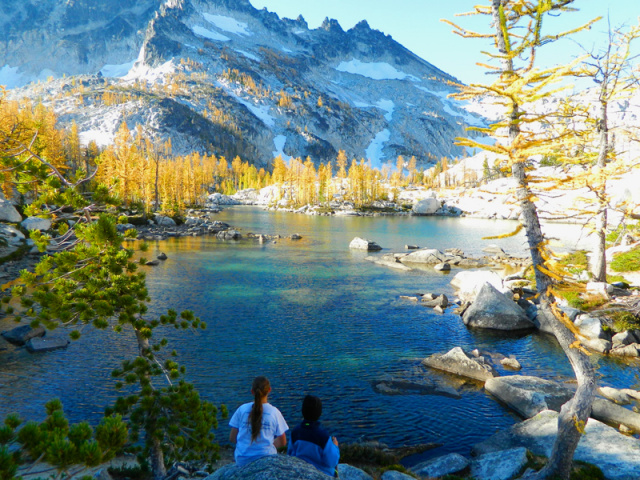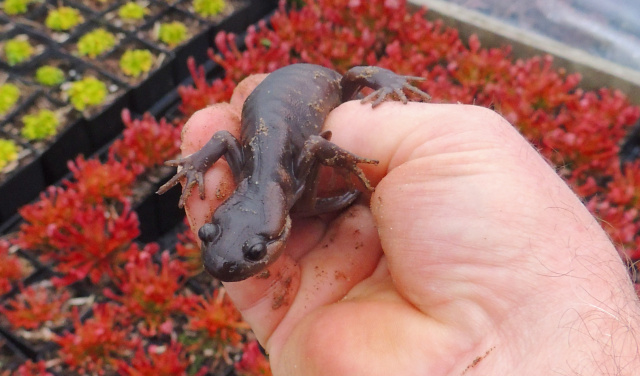
Sundquist Nursery founder Nils Sundquist learned organic gardening techniques in his formative high school years. His passion for organic gardening led to being hired to teach organic farming. It didn't pay much, but it was his first real job, and the beginning of his horticultural career. That was 1974.
Fast forward to the present. Sundquist Nursery is one of very few nurseries whose plant pest control is achieved using only integrated pest management and organic control strategies. Approaching crop production from the ground up, Nils Sundquist synergizes site conditions, soil media, fertilizer formulations, irrigation management, sanitation, and yes, a dash of hand labor to keep pests under control. Petrochemical corporations want nursery owners to believe they should join a support group if they do any hand weeding. We're proud to have controlled weeds through steady preventive light labor for so long that industry sales reps don't even call us. To them, we don't exist. We use pesticides only as needed to deal with occasional pests. We've never used either neonicotinoids or chlorpyrifos. Nils always looks for a least toxic, targeted solution. As a result of minimal pesticide use, frogs, snakes, and even sensitive native northwestern salamanders live in the nursery.
Sundquist Nursery's regional customers reap the benefits and efficiency of buying locally.  We grow our plants “hardened off" without added heat, thereby conserving resources and helping ensure an optimal transition from the nursery to your landscape.
We grow our plants “hardened off" without added heat, thereby conserving resources and helping ensure an optimal transition from the nursery to your landscape.
We use no peat moss in our potting soil. Peat is a convenient traditional ingredient for growers, but is an imported nonrenewable resource whose use includes a heavy carbon footprint. Because peat has little resemblance to most native soils, it can often be incompatible with plant establishment and require attentive water management when planting out. Peat is expensive economically, environmentally, and often in terms of aftercare consequences. All of our soil media are sourced in Washington State, are blended in small batches for specific crops, and are formulated to be compatible with native soil conditions.
Our emphasis is on slow release fertilizers to protect water resources and echo natural conditions by feeding plants evenly over time. Our soil and fertilizer practices result in our plants being well known for successfully transitioning to customers' sites.
We take pride in using the most sustainable practices to grow beautiful plants whose transition into the landscape is as smooth, steady, and seamless as can be.